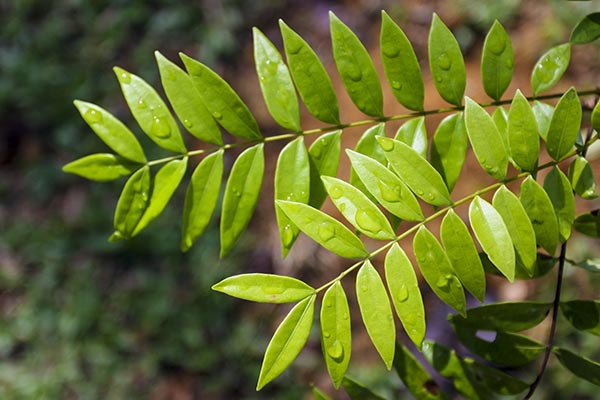How can this Southeast Asian shrub prevent bone-erosive diseases like osteoporosis?
04/22/2020 / By Evangelyn Rodriguez

The longjack plant (Eurycoma longifolia), also known as tongkat ali, is a popular herbal remedy in Southeast Asia. It is used to address a wide variety of common ailments, such as fevers, bacterial infections and erectile dysfunction. Tongkat ali also has a reputation as an “anti-aging” herb and adaptogen that improves mood and energy levels, increases libido and reduces stress levels.
In a recent study published in the Journal of Ayurveda and Integrative Medicine, Malaysian researchers found that tongkat ali can also be used to treat bone diseases. They reported that the herb can stop osteoclast activity, which is linked to bone diseases characterized by either focal or generalized bone loss. The researchers believe that tongkat ali’s mechanism of action makes it an effective treatment for bone-erosive diseases, such as osteoporosis and rheumatoid arthritis.
Tongkat ali can protect bones from erosive diseases
The medicinal herb tongkat ali has recently gained remarkable recognition due to its efficacy in stimulating bone formation in androgen-deficient osteoporosis. However, despite the number of studies investigating its effects on osteoporosis, tongkat ali’s mechanism of action is still largely unknown.
To address this, the researchers evaluated the effect of tongkat ali on the proliferation, differentiation and maturation of osteoclasts and how it inhibits osteoclast formation using RAW 264.7 cells. Specifically, they focused on the herb’s influence on tartrate-resistant acid phosphatase (TRAP) activity in receptor activator of nuclear factor-kB (NF-kB) ligand (RANKL)-induced osteoclasts.

The researchers also measured the expression of osteoclast-related protein biomarkers to understand the mechanism underlying osteoclast development. The protein biomarkers included matrix metallopeptidase-9 (MMP-9), cathepsin-K, TRAP, nuclear factor of activated T-cells cytoplasmic 1 (NFATc1), superoxide (free radicals) generation and superoxide dismutase activity.
Osteoclasts, which are responsible for bone resorption during remodeling, are generated from precursor cells like monocytes or macrophages. This process, known as osteoclastogenesis, requires the involvement of RANKL. In particular, RANKL needs to bind to the receptor activator of NF-kB (RANK), which is expressed on the surface of osteoclast precursor cells, to trigger osteoclastogenesis.
Osteoclastogenesis begins with the activation of a transcription factor known as NFATc1. NFATc1 regulates various osteoclastogenesis-related proteins, such as TRAP, cathepsin-K and MMP-9. According to literature, many factors induce osteoclast formation, such as the hormonal imbalance caused by menopause. Increased osteoclast activity leads to progressive bone loss, so inhibiting osteoclast formation and function is viewed as an excellent strategy against bone diseases like osteoporosis.
In their study, the researchers found that tongkat ali is not cytotoxic to RAW 264.7 cells. It also did not affect cell proliferation. However, exposure to tongkat ali significantly inhibited the differentiation and maturation of osteoclasts.
Tongkat ali also significantly down-regulated RANKL-induced TRAP enzyme activity; the expression of MMP-9, cathepsin-K, TRAP and NFATc1; and the generation of superoxide, all while enhancing superoxide dismutase activity. Superoxide dismutase is an antioxidant enzyme that can neutralize reactive oxygen species, which are free radicals that induce the apoptosis of osteoblasts (bone-forming cells). Increased superoxide dismutase activity does not favor osteoclastogenesis.
Based on these results, the researchers concluded that tongkat ali improves bone regeneration but suppresses osteoclast maturation. These activities are invaluable in treating osteoporosis and other bone-erosive diseases, such as rheumatoid arthritis and metastasis associated with bone loss.
Other health benefits of tongkat ali
Tongkat ali is a widely used and extensively studied medicinal plant whose benefits come from its abundance in phytonutrients. Research has found that tongkat ali is rich in beneficial compounds, such as flavonoids, alkaloids and other antioxidants. These naturally occurring chemicals can protect cells from damage caused by free radicals.
Here are some of the health benefits linked to the use of tongkat ali.
- Increases testosterone levels and improves male fertility
- Relieves stress
- Boosts athletic performance
- Increases muscle mass
- Improves physical and mental energy levels
- Helps with weight loss
Despite its widespread use in Asian countries, tongkat ali has no reported side effects and is considered generally safe for consumption. However, its safety for pregnant or breastfeeding women and children has not yet been evaluated. Before using this herb or taking it as a supplement, consult with a natural health practitioner to avoid any undesirable effect.
Sources include:
CCMBM.com [PDF]
Submit a correction >>
Tagged Under:
aging secrets, alternative medicine, arthritis cures, bone diseases, bone health, bone regeneration, herbal medicine, Herbs, longkack, natural cures, natural medicine, osteoporosis, plant medicine, research, rheumatoid arthritis, tongkat ali
This article may contain statements that reflect the opinion of the author





















